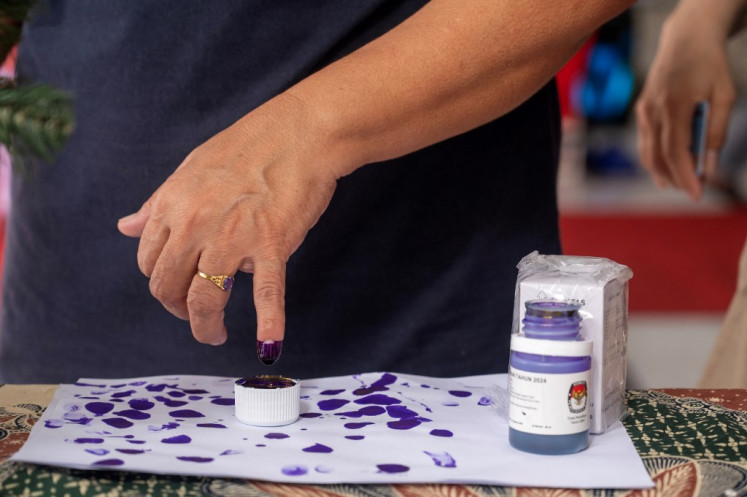Popular Reads
Top Results
Can't find what you're looking for?
View all search resultsPopular Reads
Top Results
Can't find what you're looking for?
View all search resultsRice imports to ease high prices
The government has finally allowed the importation of rice to ease the stubbornly high price of the staple food over the past two months
Change text size
Gift Premium Articles
to Anyone
T
he government has finally allowed the importation of rice to ease the stubbornly high price of the staple food over the past two months.
Premium-grade rice totaling 500,000 tons will be sourced from major producing countries, such as Thailand and Vietnam, and is set to reach Indonesia late January through state-owned trading firm PT Perusahaan Perdagangan Indonesia.
The move has triggered concerns from local farmers as the timing is near the harvest season in February and March in most key producing regions.
In defense of the policy, Trade Minister Enggartiasto Lukita underlined that the imported rice would meet the shortage of supply in the market, which when abandoned, would likely pose a big political risk.
“I choose the import policy to fill the market […] When we need it, import should not be taboo,” he told journalists in a press briefing on Friday.
Enggartiasto added that the imported rice would serve as a temporary solution until the price stabilized and harvested output piled up, and that it would not affect local farmers who would see their output absorbed by the State Logistics Agency (Bulog).
Declining rice stocks in recent months have caused a significant jump in price, one of the key contributors to domestic inflation, particularly in densely populated regions.
The rice price in Jakarta surged by 13.3 percent in the past two months to Rp 13,600 (US$1) per kilogram on Friday, according to data from Bank Indonesia’s price tracking website hargapangan.id. In West Java and East Java, the price also rose by 9.4 percent and 9.8 percent, respectively, to 11,750 per kg and Rp 11,550 per kg.
Agriculture Minister Amran Sulaiman had earlier opted out of the rice import, claiming that Bulog stocks of around 930,000 tons this month were still sufficient to meet local demand, with big harvests to occur soon.
However, Enggartiasto noted that Bulog stocks stood at only 880,000 tons as of Friday. The firm usually keeps at least 960,000 million tons under normal circumstances.
The Trade Ministry insisted that premium rice, such as jasmine rice and japonica rice, would be sold at a price similar to medium-grade rice, between Rp 9,450 and Rp 10,250 per kg.
Medium-grade rice, the most consumed type, has seen the highest price hikes.
The Trade Ministry’s foreign trade director, Oke Nurwan, said the importation would not violate prevailing rules.
“The imported rice is premium rice, not medium-grade, and therefore, no import recommendation from the Agriculture Ministry is necessary,” said Oke.
The Indonesian Farmers Union (SPI) regretted the import decision and attributed the declining rice supply and price hike to the lack of government assistance to combat pests eroding farmers’ output.
“[The small supply] is also caused by large-scale purchases made by many traders and speculators in Java from [rice] mills in Lampung, especially in Central Lampung, Pringsewu and Tanggamus,” said SPI chairman Henry Saragih, adding that importers the most from the imports.
Food and Agriculture Organization (FAO) data showed that 5 percent premium broken rice in Thailand and Vietnam are sold at $399 and $392 per ton respectively, or Rp 5,300 per kg, last November.
That is lower than medium-grade rice in Indonesia, which stands at Rp 9,450 per kg. Institute for Development of Economics and Finance economist Rusli Abdullah urged the government to thoroughly monitor the distribution of imported rice because in the past, it was often hoarded and sold only when the price had already hit normal levels, so it could then be sold at larger volumes than what was allowed.










